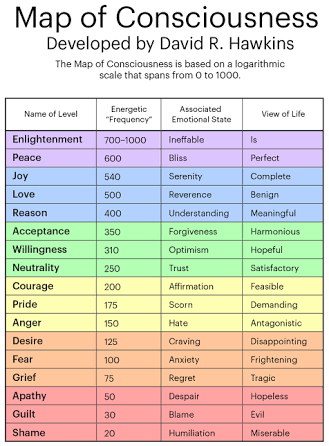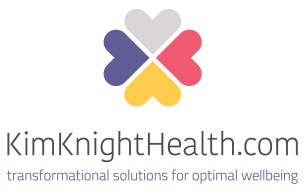‘All truth passes through three stages: first it is ridiculed. Second it is violently opposed. Third it is accepted as self-evident’ – Arthur Schopenhauer
Controversial and common sense, and what lies in between…
Recently, whilst talking with a friend about a book I’m writing on the ‘meta-physical’ (above and beyond) meaning of physical illness, when I mentioned the subject of the potential emotional stress conflict themes underpinning breast cancer, her immediate reaction was ‘oh, so it’s a controversial topic you’re writing about then?’
I was actually quite shocked at her response for two reasons: (1) because it has become so normal for me to understand illness in this way and (2) because she is a highly intelligent, well-educated woman. In my world, rather than this perspective on illness being controversial, it’s common sense, although it wasn’t always like this.
Her comment got me thinking: why is it that until we see the truth and common sense of something, we may find ourselves thinking it’s a ‘controversial’ subject?
The answer, as always, lies in our level of ‘wisdom’ consciousness, self awareness and perception of universal truth.
I explored this topic in depth in my ‘What healthcare is right for me?‘ program, which explains how the type of healthcare we choose, or even know exists, is a direct reflection of our level of self-awareness.
Whilst for many people, the concept that ’emotions turn into symptoms’ seems ludicrous, one of the most frequent comments I hear from clients, especially after their first breakthrough session, (where we delve deep into the emotional meaning behind symptoms), is ‘Oh, it just makes so much sense – I don’t know why I didn’t see this before’.
Dr Candice Pert (1946-2013) explained the science behind the power of emotions to create physiological chemical changes in her wonderful book ‘Molecules of Emotion’, leading her to be called by many ‘The Mother of Psycho-neuro-immunology’, and ‘Goddess of Neuroscience’.
So what do we mean by ‘consciousness’ and ‘self awareness’?
Self-awareness and consciousness often have less to do with our intellectual abilities, and more to do with our world-view and understanding of the universal laws of life, or universal ‘truths’. These are topics which are difficult to talk about and explain conceptually, especially if our mind has not yet ‘evolved’ enough to comprehend their meaning!
I have no qualms in openly admitting that if I had read what I have just written 30 years ago, it would have made no sense at all. I remember picking up Louise Hay’s book ‘You can heal your life’ many years ago, before I understand what I now know about healing, and reading the first page. Even though it was written in English (my first language), it was as if I was reading a foreign language – I understood absolutely nothing! It was sheer gobbeldegook! A year later I picked up the book again whilst browsing in a bookshop, and the exact same words made complete sense.
So how is it possible that the identical words and concepts can be meaningless (or mean one thing) one day, and then be meaningful (or have a different meaning) the next?
It comes back to consciousness, and how much our mind and self-awareness have evolved to understand, interpret and make sense of concepts and truths we previously could not comprehend, or perceived differently.
Professor David Hawkins, renowned physician and psychotherapist, wrote and spoke about this in his many writings and teachings. Using techniques derived from kinesiology, he presented a method by which one gauges truth, or consciousness.
On his chart below, the further up the scale one moves, the more one’s consciousness becomes aligned with universal truth. The further down the map of consciousness we are, the more likely we are to scorn the truth (ie be ‘ridiculing’ or ‘violently opposing’ truth).

The amount of reality or truth we are able to process in our mind is also intimately connected with our ‘worldview’.
Machaelle Smallwright writes about this beautifully in her book ‘Dancing in the shadows of the moon’, where she explains the theory of the ‘ring-pass-not’.
A ring-pass-not is a mental boundary which figuratively (and literally) sits around your consciousness, and within which you experience your version of the world. Everyone’s worldview is different, which is why we can say ‘we each live in our own world’ or we may say someone ‘lives in a world of their own’ – because they literally do!
The amount of ‘reality’ – or truth – you perceive is directly related to your ‘ring-pass-not’. The ‘wider’ the figurative circumference, the more reality (or universal truth) is contained within it. So whilst all of reality is available to us at any given time, you will only be able to contain or perceive a certain amount of the totality according to your current level of consciousness. If you were to perceive beyond your ring-pass-not, it might literally ‘blow your mind’, so until you are ready to take in more reality, your ring-pass-not will keep you safe.
One of the reasons I am now able to understand what I could not 30 years ago, and why I was able to understand Louise Hay’s words a year after originally reading them, when they made no sense at all, is because my ‘ring-pass-not’ expanded during that time.
Our consciousness is always expanding, or at least it should be. It will expand if we are willing and interested in learning new things, which I was at the time. When we are going through difficult life challenges, we will be pushed to expand our consciousness!
Have I lost you? Well, it’s possible that what I’m saying may sit outside your ring-pass-not!!
So, coming back to the topic in hand: why is it that until one is ready to understand the connection between emotions, stress and symptoms, and how trapped emotional energy builds up to become physical sickness, one just doesn’t ‘see’ it?
Because until we are ready and willing to ‘open our mind’ (and consciousness) to new concepts and ideas, we (and our mind) will remain closed and barred off from understanding them.
What then allows us to ‘open our mind’?
Often it comes at a point of sheer desperation: we have tried so many things which haven’t worked, and we are in so much pain and discomfort, that we become willing to ‘see things differently’. We surrender. We give up. We say “I’m ready to do whatever it takes to change”. And at that point our consciousness shifts. It’s like a window opens up in our mind which was always there, but which we never saw before. It’s like magic!
And this is when what previously seemed ‘controversial’ or ‘ridiculous’ becomes ‘normal’ and ‘commonsense’. And all of a sudden, we see things in a completely different light, and our whole world, as well as our worldview, changes. We’re still the same person, but our consciousness inside is radically shifted.
The true key to freedom is in these shifts and evolution of consciousness. Once our mind and awareness changes, our life changes. We are never the same again, and our life and health can change exponentially.
As renowned philosopher, architect and inventor Buckminster Fuller said “You never change things by fighting the existing reality. To change something, build a new model that makes the existing model obsolete”.
Is it time to upgrade your reality? Do you want new options and answers for your health and life? If the answer is yes, then maybe it’s time to perceive the ‘common sense in the controversial’ by upgrading your consciousness!
About the author

Kim Knight is a health and wellbeing educator who teaches people how to transform their health problems through TKM root cause analysis and TKM lifestyle medicine.


